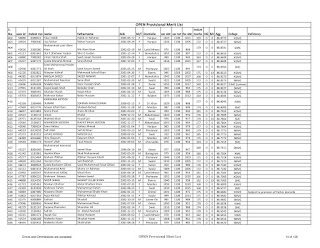Noun Phrases
Noun Phrases
A noun phrase is any phrase that
has a noun as its head and that can occupy the same slot as a single noun or
pronoun in a larger phrase or in a sentence.
·
Dogs frighten me. (noun)
·
Big dogs frighten me (noun phrase)
·
She ran outside to play (pronoun)
·
The little girl ran outside to play
(noun phrase)
·
Don't touch that (pronoun)
·
Don't touch those books (noun phrase)
·
She came with Margaret (noun)
·
She came with her older sister (noun
phrase).
v Other
examples of noun phrase are:
·
She gave him a big sweet piece of cake.
·
They're both excellent teachers
·
There's a tall, good-looking man outside
who wants to talk to you
·
They're in the back garden.
·
He had been watching her all evening.
·
He's such a kind man.
·
I started this project without very much
enthusiasm.
·
He picked up the ornately decorated wine-glass
and took a small sip.
The
head
of a noun phrase is the noun being described or referred to in the phrase
·
Her Older sister
·
A big sweet piece of cake
·
Many pleasant days
v Sometimes
a pronoun can be the head of a noun phrase:
·
That's a big one.
·
I'd like those red ones.
·
They both knew the truth.
·
Are all these for me?
·
Have you anything new to tell me?
Word Order in Noun Phrases
The words that precede a noun or
pronoun in a noun phrase follow a certain order
·
In first position in noun phrases come
the predetermines, determiners, quantifiers and numerals, in that order:
·
She was carrying several large black
books
·
Who owns those two cars?
·
They own both these big yachts
v Ordinal
numbers (first, second, third, etc, and also last) come before cardinal numbers
(one, two, three, etc)
·
The first six contestants
·
The last two riders
v After
this group of words come the adjectives and other descriptive words.
It is important to note that the
order of adjectives in a noun phrase is not entirely free. Certain categories of
adjective must always precede or follow others within the phrase:.
·
Big green car NOT a green big car
·
An old Russian car NOT a Russian old car
v Closest
to the determiners, etc come the general descriptive adjectives:
·
A disturbing outlook on life
·
An amazing coincidence
·
A beautiful tapestry
·
An urgent telephone call
v Continuing
towards the head of the phrase, next again are adjectives denoting age (new,
old young, etc) and then adjectives denoting colour (for example black, brown,
red, white, etc):
·
A beautiful old car
·
A Pretty new blue dress
v To the
right again come participles (for example broken, cut, laughing,singing, woven,
etc), sometimes preceding and sometimes following the colour adjectives:
·
A strange carved idol.
·
A Lovely green woven scarf OR a lovely woven
green scarf
v To the
right again come adjectives denoting countries, peoples, tribes, and so on, for
example Californian, French, Japanese, Roman, etc:
·
An excellent French perfume
·
A Little Japanese doll
v Nearest
to the head of the phrase stand:
*adjectives
and nouns that describe what the substance is made out of or what it resembles
(for example brass, cardboard, iron, leather, metal, paper, steel, stone,
wooden, woollen, etc):
·
A brass band
·
Along iron rod
·
A strange Celtic stone carrying
*Adjectives that mean 'relating
to- (for example atomic, biological, criminal, historical, medical, moral,
philosophical, political, social, etc)
·
A new medical centre
Noun Clauses
A noun clause is a subordinate
clause that can have the same function or fill the same slot in a sentence as a
noun or pronoun.
·
It was quite unforgivable (pronoun)
·
What you did was quite unforgivable
(noun clause)
·
I Didn't realize that (pronoun)
·
I Didn't realize that you were coming
with us (noun clause)
·
The problem is money (noun)
·
The problem is that no-one came to the
party (noun clause
·
The prize will go to Raymond (noun)
·
The prize will go to whoever answer the
questions correctly(noun clause)
v Noun clauses may
begin with subordinating conjunction that, other subordinating conjunctions
such as if, whether, how, when, where and why interrogative pronouns such as
who, whose, what and which, and interrogative determiners such as what, which
and whose:
·
I'm sure aware that we've been waiting
for more than an hour?
·
I wonder if Iris will be coming with us.
·
Ask her whether she's coming.
·
Do you know why the rainbow has seven
colours in it?
·
I Wondered where he was.
·
Don't know who won the prize.
·
I wondered what he was doing.
·
Have you any idea which is Akram's?
·
She wants to know whose that is.
·
Which book I Should choose is the big
question.
·
I wasn't sure about what clothes I
should be taking with me.
·
The police want to know whose car that
is.
·
Noun
clauses
also include the nominal relative clauses which are formed with the pronouns
and determiners what, whatever, whichever and whoever.
·
The price is what is most important (=...
the thing that is most important)
·
According to what she said, a lot of
people are going to lose their jobs.
·
She can do whatever she likes.
·
Take whatever books you need.
·
Take whichever ones you want.
·
Whoever answer the question correctly
will win the prize (=the person who answer...)
·
I'll give whoever answer the question
correctly a prize..
Functions of Noun Clauses
A clause can have any of the same
functions in a sentence as a noun or pronoun. It can, for example, be the
subject of the sentence:
·
That I forgot your birthday was quite
unforgivable
·
What you did was quite unforgivable or
the direct object:
·
Didn't realize that you were coming with
us.
·
I Didn't realize what T had done or the indirect
object
·
Pll give whoever answers the questions
correctly a prize.
Or
a complement:
·
The worry is that no-one might turn up
at all.
·
The problem is who we should invite.
Or
the complement of a preposition:
·
The money will go to whichever charity
you choose.
More about Noun Clauses
v We have
seen that there are three kinds of Subordinate Clauses;
The Noun Clause, the adjective
Clause and the Adverb Clause.
We have also seen that a Noun
Clause is subordinate clause which does the work of a noun in a complex sentence.
Since a Noun Clause does the work
of a Noun in a complex sentence, it can be:
1. The subject of a verb.
2. The object of a transitive
verb.
3. The Object of a preposition
4. In Apposition to a Noun or Pronoun.
5. The Complement of a verb of
incomplete predication.
v In each
of the following Complex sentences, the Noun Clause is the subject of a verb:
·
That you should say so surprises me.
·
That it would rain seemed likely
·
What he said was true.
·
When I shall return is uncertain.
·
How he could assist his friend was his
chief concern.
·
Why he left is a mystery.
·
Whether we can start tomorrow seems
uncertain.
v In each
of the following Complex sentences, the Noun Clause is the object of a transitive
verb:
·
He says that he won't go.
·
I hoped that it was true.
·
She denied that she had written the
letter.
·
I cannot tell what has become of him
·
Don't know when I shall return.
·
I asked the boy how old he was.
·
Tell me why you did this.
·
Tell me where you live.
·
No One knows who he is.
·
L earn whatever I can.
·
Ask if he is at home.
v In each
of the following Complex sentences, the Noun Clause is the object of a preposition:
·
Pay careful attention to what I am going
to say.
·
There is no meaning in what you say.
·
There were no complaints except that the
day was too hot.
v In each
of the following Complex sentences, the Noun Clause In Apposition to a Noun or
pronoun:
·
Your statement that you found the money
in the street will be believed.
·
His belief that someday he would succeed
cheered him through many points
·
You must never forget this that honesty
is the best policy
·
It is feared that he will not come
·
It was unfortunate that you were absent
v In each
of the following Complex sentences, the Noun Clause is used as the Complement
of a verb of incomplete prediction:
·
My belief is that he will not come.
·
Her constant prayer was that the child
might live.
·
His great gear is that he may fail.
·
My wish is that may please you.
·
Their request will be that they may be
allowed to resign.
·
Life is what we make it.
·
This is where I live.
v A
Clause coming after a construction consisting of an interactive verb (particularly
the verb to be) and an adjective does the word a noun and is therefore, treated
as a Noun Clause
In each of the following Complex
sentences, the Noun Clause comes after an intransitive verb construction:
·
The child was afraid that he would fall
down.
·
All of us are keen that you should
succeed.
·
They felt sorry that they lost the
match.
·
The patient was sure that he would
recover.
·
She did not seem hopeful that he would
arrive.
It
will be seen that the preposition of about or for necessary to connect the
Intransitive verb construction to the succeeding Noun Clause in each of the above
sentences is omitted. If we put a noun or gerund instead of the Clause. would
say afraid of, keen about, sorry for,
sure, helpful of and the noun or gerund would be the object of the preposition
in each case. The Noun Clause in each of the complex sentences may also be
regarded as the object of the missing preposition after the intransitive verb
construction. However, such Noun
Clauses are often said to be used
adverbially
Note
From the above examples it will
be seen that a Noun Clause is generally introduced by the subordinating
Conjunction that. Sometimes, however, the Conjunction that is omitted; as
I know (that) he did it.
Exercise 3
Write down a dozen Complex
sentences, each containing a Noun Clause. Make the Noun Clause a subject in the
first three, an object in the next three and in apposition to a Noun or pronoun
in the next three. Use the Noun Clause predicatively in the last three
Exercise 4
Point out the noun clause and say
whether it is the object of some verb or the Complement of some verb, or in
apposition to some noun or pronoun, or the object of some preposition:
1. Tell me how you found that
out.
2. That he will succeed is
certain.
3. I think you have made a
mistake
4. She says her mother is ill.
5. How long I shall stay here is
doubtful.
6. Did not know that he had come.
7. It is clear that he was
guilty.
8. I don't understand how it all
happened.
9. Can you tell who wrote Shakuntala?
10. All depend on how it is done.
11. Do you deny that you stole
the purse?
12. The law will punish whosoever
is guilty.
13. I think I know your face.
14. Ask if dinner is ready
15. The report that he was killed
is untrue.
16. He was very hopeful that he
would succeed.
17. Do whatever you think is
right
18. I don't see how you can get
out of this mess
19. Do you know when the train
will arrive?
20. Whoever came was made
welcome.
21. I understand you know the
situation.
22. My verdict is that the
prisoners shall die
23. I cannot express how sorry 'm
24. They guessed what he meant
25. I Am Afraid that she will be
angry
26. Will you explain why you
behaved so?
27. No one can tell how this will
end.
28. The truth is that we have been
deceived.
29. It is not clear who has done
this
30. I do not know how I can deal
with this rascal.
31.Did not know whether I should
laugh or cry
32. We are desirous that you
should succeed.
Sometimes, instead of a Noun
Clause introduced by that, the Accusative with the Infinitive is used
1. (a) He thought that he was safe there
(b)He
thought himself to be safe there
2. (a) I believed that he was a true friend.
(b) I
Believed him to be a true friend
3. (a) This proved that the man had stolen the horse.
(b) This
proved the man to have stolen the horse
4. (a) We know that Rabia is alive.
(b) We
know Rabia to be alive..








Comments
Post a Comment